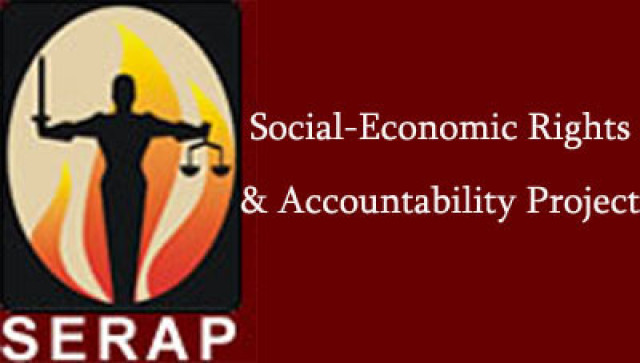The Socio-Economic Rights and Accountability Project (SERAP) has initiated legal action against the Central Bank of Nigeria for not revealing the specifics of any direct payments made to the 774 local government councils in Nigeria, including the amounts allocated to each.
According to a statement from Deputy Director Kolawole Oluwadare, this lawsuit comes after a significant Supreme Court ruling last July, which determined that allocations from the Federation Account held by the CBN must go directly to democratically elected local government councils, and that governors lack the authority to withhold, control, or utilize these funds intended for the councils.
In its filing, case number FHC/L/MSC/521/2025 on Friday in the Federal High Court in Lagos, SERAP seeks a court order compelling the CBN to disclose all direct payments to the 774 local government councils since the Supreme Court decision.
The organization is also demanding information on whether any direct payments have been made from the Federation Account to the local councils in Rivers State, along with explanations for any such payments.
SERAP contends that the CBN should facilitate public access to details about direct payments to ensure transparency and accountability, allowing citizens to evaluate compliance with the Supreme Court's ruling.
Furthermore, SERAP asserts that granting these requests would significantly advance the principles and values enshrined in the amended 1999 Nigerian Constitution and are essential for a functioning democratic society.
SERAP points out that state governors are depriving local governments of necessary funds, thereby endangering their viability, despite the Supreme Court's orders. Ignoring these edicts threatens the court's authority and challenges the rule of law.
The organization also argues that the CBN must act in the public interest to ensure that the 774 councils receive their funds directly from the Federation Account as mandated by the Supreme Court.
SERAP emphasizes that the CBN is constitutionally and statutorily obligated to maintain governance in accordance with the Nigerian Constitution and to prevent any unauthorized management of federal allocations.
The lawsuit, represented by SERAP's lawyers, Kolawole Oluwadare and Oluwakemi Oni, insists that the CBN must uphold compliance with judicial orders to preserve its credibility and functionality.
Additionally, the ongoing actions of states and the Federal Capital Territory (FCT) are seen as undermining local governments, jeopardizing their role as a vital tier of government per the Nigerian Constitution.
The CBN is tasked with safeguarding allocations from the Federation Account for direct disbursement to the officially recognized three tiers of government.
SERAP stresses that local councils are rightful owners of their allocations and underscores the need for all restrictions hindering direct disbursements to comply with the Supreme Court's directives, especially prior to the 2027 elections.
It claims that states and the FCT have forfeited their right to manage local government allocations, having failed to utilize them for the councils' and citizens' benefit. Any diversion of these funds could exacerbate poverty among vulnerable populations.
In its statement, SERAP highlights the CBN's crucial role in rejuvenating local councils and enhancing opportunities for residents in those areas, urging the CBN to prevent states from violating the Supreme Court's ruling regarding public funds designated for local councils.
The organization insists on the CBN's duty to adhere to the Nigerian Constitution and fulfill international human rights and anti-corruption commitments in its operations. Local government councils are entitled to direct payments from the Federation Account corresponding to their allocations. States are prohibited from collecting, controlling, or misusing these funds meant for the councils.
The Supreme Court has identified the Freedom of Information Act as applicable to public records within the Federation, including those held by the CBN.
A comprehensive interpretation of the Nigerian Constitution, the Freedom of Information Act 2011, and the African Charter on Human and Peoples’ Rights imposes transparency obligations on the CBN to openly disclose information as requested by SERAP.




















